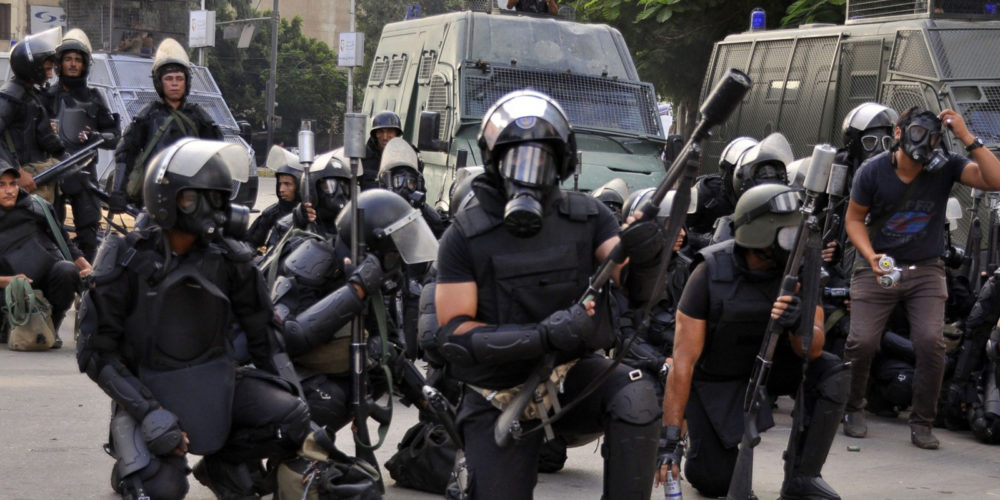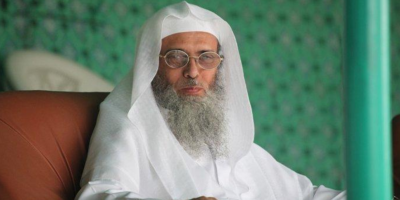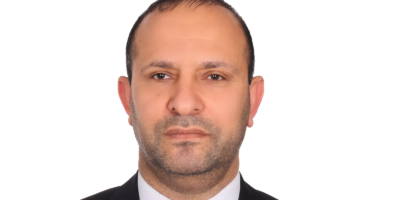Press Release
Written by: The Committee for Justice
Geneva: October 3, 2023
The Committee for Justice (CFJ) organized a panel discussion on the sidelines of the 54th regular session of the Human Rights Council, on Tuesday, October 3, 2023, titled “Human Rights in Egypt: Mirage of Reform.” The discussion addressed the severe human rights situation in Egypt, despite President Sisi’s statements and the Egyptian authorities’ claims of improving the situation of human rights.
Sarah Sakouti, CFJ’s UN Communications Officer, opened the discussion by emphasizing the panel’s commitment to justice. She stated that the situation in Egypt is dire, with widespread repression across the country, as the authorities continue to target anyone opposing them or speaking out against human rights violations.
Human Rights Violations Are Global and Affect Everyone:
German-Egyptian political activist Fagr al-Adly, who participated online, talked about her father’s detention in Egypt due to her peaceful political activism against the Egyptian authorities. She stated, “My father’s only crime is that he is my father. I am being punished because I raised my voice on behalf of others. My father has no political activities; he is just an ordinary citizen who devoted his life to his family. Supporting me is what put him in this position.”
Al-Adly added that her father is deprived of his basic human rights, especially his right to freedom. She noted, “As a family, we are now facing collective punishment, a serious violation of human rights and the fundamental principle of the rule of law.”
The German-Egyptian activist stated that her 60-year-old father is a victim of injustice, deprived of his fundamental rights, suffering physically and mentally, and his health is deteriorating. He is isolated from others and is allowed out of his cell for only one hour daily.
“I speak here today because the international community has a critical role to play in upholding human rights and the rule of law. Human rights are universal and violations of those affect us all, they apply to all people regardless of their origins or colors,” she added.
Poor Detention Conditions:
In this context, the wife of the detained Egyptian human rights activist Mohamed Adel, Mrs. Rofaida Hamdi, mentioned in her online statement that “her husband was held for an extended period before being sentenced, for a duration of 5 years and 3 months, on the same charges that the Egyptian authorities usually press against opponents, activists, and human rights defenders in the country. Mohamed’s peaceful political activism is well-known since the days of the ousted Egyptian president, Hosni Mubarak. However, it seems that his activism is not favored by the current ruling authority in Egypt.”
Regarding the detention conditions, Rofaida said that her husband “was detained for a while in Mansoura prison, where the conditions are extremely poor, and basic human rights are non-existent. Mansoura Prison is designed without toilets inside the cells, so bathing and using the restroom are scheduled, even at night! There was also a lack of responsiveness in allowing food and personal necessities, especially during the coronavirus pandemic. The same applies to prison visits, where visits don’t exceed 20 minutes and are limited to once a month for only two individuals and conducted behind iron bars, in violation of Egyptian prison regulations, all under the pretext of precautionary measures. These measures, initially implemented due to the coronavirus paandemic, continue to be in effect only in Egyptian prisons.”
The wife of the detained Egyptian human rights activist Mohamed Adel called on the international community and UN mechanisms to pressure the Egyptian authorities for his immediate release, and not just to improve his detention conditions.
No Guarantees for Implementing the Recommendations of the National Dialogue:
Similarly, the human rights researcher at the Egyptian Commission for Rights and Freedoms, Ibrahim Ezz El-Din, clarified in his statement that the human rights situation in Egypt is extremely dire. And broad charges are being pressed against political activists and human rights defenders.
Regarding economic and social rights, Ezz El-Din confirmed that they are also violated, such as the right to housing, the forced displacements and evictions associated with alleged redevelopment projects, accompanied by the excessive use of force against civilians.
Ezz El-Din added, “The situation is also dire regarding the right to health, as the security crackdown on freedom of expression has intensified during the ‘COVID-19’ crisis, with cases
related to ‘COVID-19’ appearing as charges for spreading rumors and fake news, for anyone who shared information about infection rates or deaths.”
Regarding the results of the national dialogue, Ezz El-Din stated: “Dialogue sessions were held, and nothing is known about their outcomes yet. Just opposition figures met together, and recommendations were sent to the president, who forwarded them to legislative and executive bodies for possible implementation, without any guarantees that these recommendations would be executed.”
Egypt is More Aggressive in Undermining Human Rights Standards:
Jeremie Smith, the researcher at the Cairo Institute for Human Rights Studies (CIHRS), in his intervention, said that “Between 2022 and 2023, 1600 political prisoners were released. However, during the same period, 5000 individuals were arrested for reasons related to peaceful expression and forming associations.” He emphasized that Egypt has become more aggressive in undermining international human rights standards.





